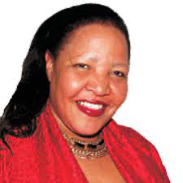Fred S. Roberts, Igor Sheremet Co-Chairs
Background: Resilience of Digitized Complex Systems
Today’s society has become dependent on complex systems, enabled by increased digitization of our world and the increasing availability of vast amounts of data, that have had a great impact on virtually all facets of our lives and our societies: enabling our financial transactions, running our power grid, underpinning our transportation systems, empowering our health care, supporting the rapid delivery of supplies and materials. Yet these changes have made us vulnerable to natural disasters, deliberate attacks, just plain errors. A challenge is to develop ways to make our complex systems more resilient. We propose to continue the work of the “Task Group Advanced Mathematical Tools for Data-Driven Applied System Analysis” to address this challenge through the development and refinement of a toolkit of advanced mathematical tools.
Mathematical Tools to Enhance Resilience
Modern technological and sociotechnological systems consist of numerous critical infrastructures that are strongly interconnected, which makes them vulnerable to multiple chain or cascading destructive impacts. Vast amounts of data need to be taken into account in understanding the performance of such infrastructures and their interconnections, and understanding how to make them resilient. Mathematical tools can assist with this and in particular the Task Group will study algorithms for responding to a disruption that will enhance resilience, i.e., minimize the departure from a previous state when things settle down after a disruption.
Mathematical Tools to Design Resilient Systems
In addition to helping us understand how to bring a system back to a normal state as rapidly as possible, mathematical methods can aid us in understanding how to design systems so as to make them more resilient in case of disruption. Modern complex systems may include millions of interconnected components (humans, devices, buildings, etc.), so to design a system with a predefined level of resiliency, it is necessary to represent in some formal way a system’s structure and logic of operation, and to develop an appropriate mathematical and algorithmic toolkit that can provide for efficient search for solutions over the extra-large volumes of data associated with digitized systems in today’s era of Big Data. This is a major goal of our proposed renewed Task Group.
The Task Group’s Approach
In the pages that follow, we describe the basic components of our approach. This consists of taking advantage of a multidisciplinary team, each bringing to the dialogue their own mathematical expertise and tools (whether it be graphs and networks, simulation tools, or the theory of algorithmic decision making), developing ways to share the tools, and studying how to relate them to an organizing component designed around a multiset-based (







